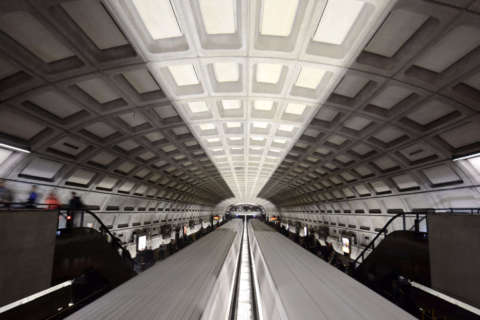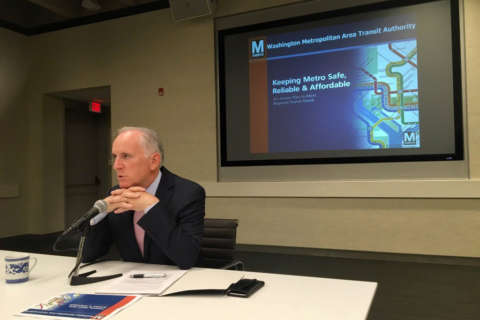WASHINGTON — Metro and Virginia Railway Express add at least $600 million per year in tax revenue to Virginia’s state government, a new study focusing on the importance of transit to the region finds.
The Northern Virginia Transportation Commission’s preliminary High Capacity Transit Economic Impact Study comes as many on the commission are trying to convince lawmakers in Richmond and elsewhere that Metro needs millions in additional, dedicated funding to address long-deferred maintenance, repairs and upgrades.
“The objective of NVTC’s study is to quantify the value and worth that high-capacity transit modes (Metrorail and VRE) operating in Northern Virginia bring to the Commonwealth,” the authors said in a memo to NVTC commissioners.
The study essentially took the current traffic and development across the region, removed Metro and Virginia Railway Express from the picture, then deleted development in Northern Virginia by moving it to D.C. or Maryland until traffic models projected a return to current levels of rush-hour backups.
Based on the number of jobs and homes that were moved across the Potomac River, the study then estimated how much less Virginia’s state government would take in from income taxes and from the approximately one-third of the sales tax that goes directly to the state’s general fund.
“Based on preliminary analysis, NVTC has found that the General Fund of the Commonwealth receives over $600 million per year in revenue from the households and jobs supported by the high-capacity rail network in Northern Virginia. This represents nearly four percent of the General Fund revenues generated by the income tax and retail sales and use sales tax in Virginia,” the authors find.
Income taxes and that portion of the sales tax provide about 87 percent of Virginia’s $18.3 billion in annual general fund revenues. Around 69 percent of Virginia’s general fund revenues come from personal income taxes, and 2014 data showed about 40 percent of the state’s income tax liability came from people in Northern Virginia.
The study did not look at the additional revenue from separate portions of the sales tax dedicated to other purposes, including transportation, or additional revenue from local property taxes that city and county governments take in due to the additional development.
A 2011 study by Metro took a different approach to show the system’s value — instead focusing on how many additional roads or road widening projects would be needed if the transit system did not exist.







